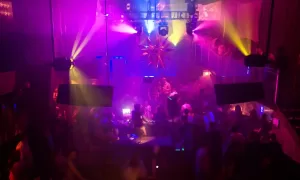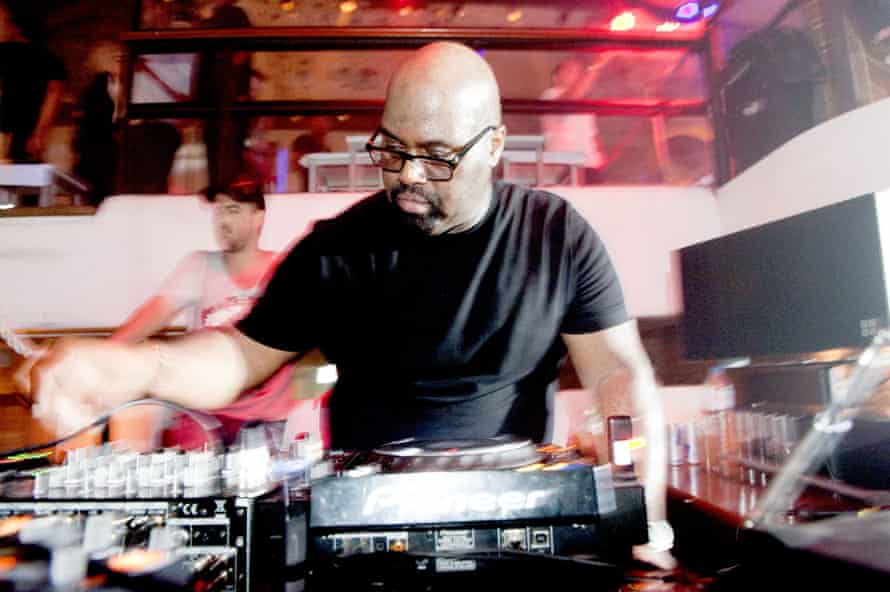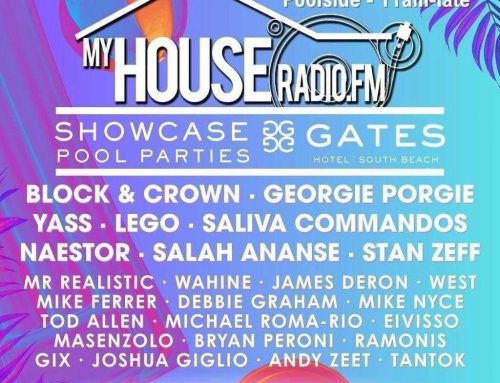The world’s biggest Black stars have turned to the genre not to pander to white tastes – but to remind fans where it came from.

This week, Drake treated fans to a surprise drop of his new album Honestly, Nevermind. Its release, just nine months after his last record, Certified Lover Boy, received lukewarm reviews from critics, was unexpected. Fans had hoped for a return to the sounds he made famous: conventional, bassy, euphoric hip-hop tunes to brood to; agonized lyrics that would be the mainstay in Instagram captions for the rest of the summer. But instead, another curveball: track after track of deep house beats.
A few days later, Beyoncé teased her new single, Break My Soul, featuring the distinctive bassline of the house classic Show Me Love by Robin S. It’s been hard to nail down Beyoncé’s sound in recent years. Her critically acclaimed 2016 album Lemonade featured some songs that entered new territory – take the country-tinged single Daddy Lessons – but on the whole, it was firmly anchored in the kind of R&B that has been popular and chart-topping for the past decade. But this single offered something new – an unmistakable hark back to 90s house.
Unsurprisingly, this shift in tone by two global powerhouses of R&B and hip-hop has attracted heavy criticism, with the artists being accused of pandering to white tastes – and pockets. Part of the criticism is rooted in fact: both have chosen to centre a genre that isn’t typically associated with our current perception of commercially successful Black music. Sure, both had flirted with house in the past – Drake on the top-10 charting Passionfruit, and Beyoncé with Formation, which hinted at New Orleans house offshoot genre bounce, but had largely steered clear, until now.
This seemingly sudden enthusiasm for house music might at first seem random, or even cynical if you are to believe the critics. House has, after all, become synonymous with whiteness, with its figureheads still being mostly white, male DJs, and electronic music festivals such as Creamfields and super clubs such as Ministry of Sound still pulling in largely white audiences, though the same can also be said for most music festivals. Many young Black people have accepted this status quo. But it doesn’t take much digging to find that the roots of the genre are firmly planted in Black, brown and LGBTQ+ communities.
House music was born out of Chicago’s predominantly Black nightlife scene, with the godfather of house, Frankie Knuckles, pioneering the distinctive sound. The origins of techno, too, can be traced to Black Detroit and there are still prominent electronic Black DJs in the field, such as Honey Dijon, Jayda G and Seth Troxler, even if the majority now form part of an underground movement catering to music lovers in the know.
So how did house become so white? As electronic music grew in popularity and started being adopted by international audiences in the 1990s, white people slowly started to take ownership of it. But the full picture is much more nuanced than appropriation alone. The quiet erasure of Black influence on the genre was in part facilitated by white communities and their concerted effort to shut down Black nightlife venues, with law enforcement too often unfairly associating these spaces with unruliness and crime, a trend we continue to see with the over-policing of grime music.
As the genre began to establish itself in the mainstream in the early 90s, the popularity of house went from strength to strength, and white folks began to take up space behind the decks. Artists such as Daft Punk and Pete Tong garnered incredible success from music that sampled Black artists and became the palatable, inoffensive faces to reel in white audiences hooked on traditionally Black sounds. This slow whitewashing happened alongside the proudly Black-fronted explosion of R&B and hip-hop, which, perhaps seeing what happened to house, emphatically refused to centre white artists – a trend that largely continues today, though not without exception. Today, the legacy of this separation is seen in white music fans’ overidentification with a genre that was not built by them, and young Black people under-identifying with it and the breadth of what Black music can look like beyond R&B and hip-hop.

This tension is palpable in the electronic nightlife scene. Black promoters have spoken out about reportedly being shut out of London’s biggest nightclubs. In 2015, Black house producer Felix Da Housecat accused Berlin’s electronic epicentre Berghain of racism after being denied entry, and Solange has shared her experiences of “hostility” in predominantly white spaces after reportedly having a lime thrown at her at a Kraftwerk concert.
Further afield, house producers, many hailing from South Africa such as Uncle Waffles and the now veteran Black Coffee, have become aspirational Black figureheads of the genre – selling out huge shows on the African continent and beyond. Perhaps piggybacking on this trend, the releases by Drake and Beyoncé are important – and not because they’re necessarily groundbreaking or brilliant. Whether you like house music or not doesn’t matter. This renewed enthusiasm for house is less a matter of taste, and more a way of regaining ownership of a genre that has had its roots ripped from the soil. Seeing the world’s biggest Black stars start a conversation about the origins of house music will propel Black fans to dig deeper into their history – and show white people how to appreciate it.
- Michelle Kambasha works in the music industry
- Do you have an opinion on the issues raised in this article? If you would like to submit a letter of up to 300 words to be considered for publication, email it to us at gu**************@th*********.com
Unlike many others, the Guardian has no shareholders and no billionaire owner. Just the determination and passion to deliver high-impact global reporting, always free from commercial or political influence. Reporting like this is vital for democracy, for fairness and to demand better from the powerful.
And we provide all this for free, for everyone to read. We do this because we believe in information equality. Greater numbers of people can keep track of the global events shaping our world, understand their impact on people and communities, and become inspired to take meaningful action. Millions can benefit from open access to quality, truthful news, regardless of their ability to pay for it.
If there were ever a time to join us, it is now. Every contribution, however big or small, powers our journalism and sustains our future. Sup





Leave A Comment
You must be logged in to post a comment.